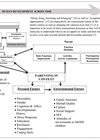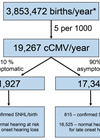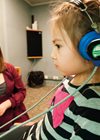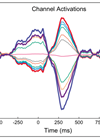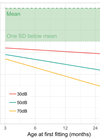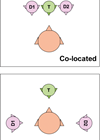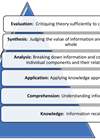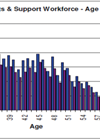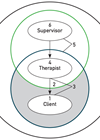Audiology features archive for 2018
Family-centred early intervention: supporting a call to action
Family-centred care for young children is a commonly used but frequently under-appreciated approach in audiology. Prof Moodie discusses how we can take positive action to improve our approach to families in ways that make a meaningful difference in their lives....
Targeted CMV screening and hearing management of children with congenital cytomegalovirus infection
Congenital cytomegalovirus (cCMV) infection is a common congenital infection and is the leading infectious cause of sensorineural hearing loss (SNHL) in children. Prof Karen Fowler discusses current research and the exciting future of screening for cCMV in newborns. Figure 1....
Lessons from the outcomes of children with hearing loss study
The Outcomes of Children with Hearing Loss (OCHL) study of 300 children with hearing loss has targeted several factors that are under the control of audiologists and parents. Drs McCreery and Walker discuss how these ‘lessons learned’ can lead to...
The importance of hearing aid validation in infants with hearing loss
Hearing aid validation requires that speech discrimination be measured, yet there are no validated methods of measuring speech discrimination in infants and toddlers. Prof Uhler describes two related approaches that are showing promise. Speech discrimination is the gold standard for...
Facing up to the challenge of behavioural observation in infant hearing assessment
The ability to assess detection and discrimination of speech by infants has proved elusive. Dr Iain Jackson and colleagues discuss how new technologies and fresh approaches might offer valuable insight into young infants’ behavioural responses to sound. The limits of...
Cochlear implantation in children with single-sided deafness: rationale and early findings
Cochlear Implantation (CI) in children with single-sided deafness (SSD) is a controversial treatment option. Profs Karen Gordon, Papsin and Cushing discuss the rationale and early findings on the relative success of achieving binaural hearing for SSD with CI. If you’d...
How should we detect and identify deficit-specific auditory processing disorders?
The human central auditory nervous system (CANS) is complex and highly dependent upon attention and cognitive brain regions. Profs David Moore and Harvey Dillon discuss novel assessment approaches to clarify auditory contributions to listening difficulties in children. How can we...
Continuing professional development
In this article Siobhán Brennan explores continuing professional development (CPD) in all its glory! She outlines why it’s important to continue learning throughout our careers, highlights some of the challenges facing those trying to undertake CPD and discusses the variety...
Looking at musculoskeletal disorders in audiology
Musculoskeletal disorders are one of the leading cause of sickness absence from work, work disability and loss of productivity across all European Union member states. Isla Beausire is a working audiologist with a personal and professional interest in this subject...
‘Want an upgrade?’ Moral distress in audiology
Ethical practice in audiology has become a hot topic in recent years, particularly in the independent sector where sales can be linked to commissions. Andrea Simpson has explored this issue in her research and shares her insight into the drivers...
The potential benefits of having supervision in clinical practice
Marie Wardle is the Programme Director of the Interpersonal Therapy department in the West Midlands, UK and part of her role is to deliver supervision training courses for therapists in the region. Therapists, whether supporting patients with psychological or physical...
Hearing, tinnitus and hyperacusis in the arts
Hearing loss, tinnitus and hyperacusis are discussed by David Baguley from the unique perspective of their depictions in literature, music, film and paintings. This article provides unusual and invaluable reflective opportunities for the patient-centred clinician! Audiologists and otologists understand hearing...


